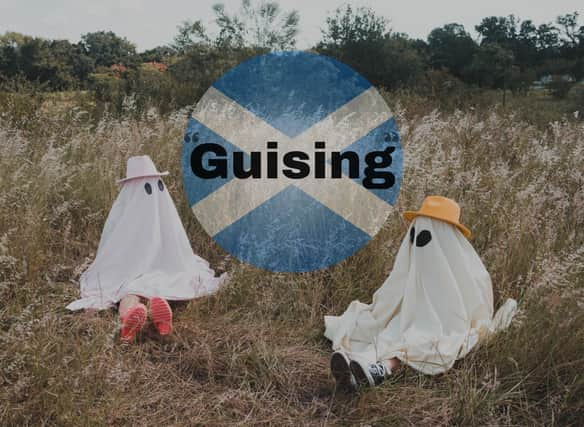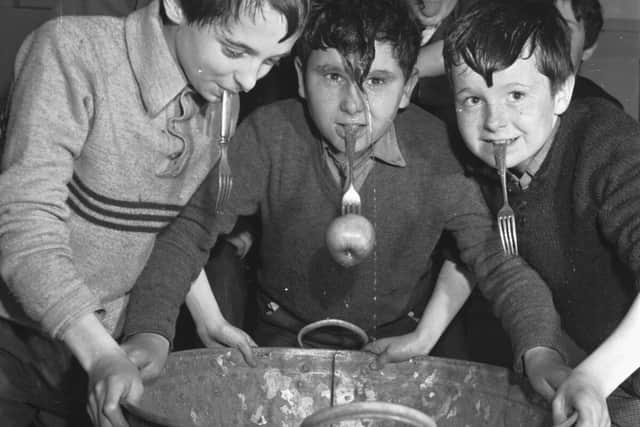Scottish Word of the Week: ‘Guising’ the Scots equivalent of ‘trick-or-treating’


Famous Scottish poet and lyricist, Robert Burns, wrote about the myths and traditions tied to Halloween in Scotland with his 1785 poem entitled “Halloween”. In short, the event is centred on the supernatural and can be traced back to Samhain; an ancient Celtic festival which is translated as “Summer’s End”.
Samhain marked the passage from the harvest season to the dark winter hence why it was symbolic of the journey from life to death and the time when the boundary between our world and that of the spirits’ was said to weaken.
Advertisement
Hide AdAdvertisement
Hide AdThe Halloween observed in Scotland nowadays is something of a far cry from the bygone era that pioneered it but modern customs we uphold are consistent with traditional ones such as dressing up in creepy costumes.
If you ask our transatlantic cousins across the pond they’ll tell you this is called ‘trick-or-treating’ but Scots know it by a different name; guising.
Now, as Autumn draws to a close and we tiptoe towards Halloween, here is an overview of our ‘Scottish Word of the Week’ i.e., “guising” including its meaning, origin and pronunciation.
Definition of “Guising”
According to Scottish Words Illustrated: “guising” means “to go round your neighbours and friends, in fancy dress, offering entertainment in exchange for gifts.”
If you are engaged in the practice of guising then this makes you a “guiser”.


How to use “guising” in a sentence
As we approach Halloween you may be asked: “are you going guising this year?” In 2003, the Evening Times wrote the word in the following: “Years ago, Scots’ Halloween seemed to consist of dooking for apples - and a few hardy children braving the cold to go guising.”
Pronunciation of “Guising”
Take the pronunciation of “guys” and couple it with that “ing” to form the word guising which can be sounded out as “guy-zing”.
“Guising” Origins
The Cambridge Dictionary reports that the Scottish practice of “guising” is derived from the word “disguising” in reference to the dress-up tradition. Merriam Webster adds that the first known use of the term “guise” as “a form or style of dress” dates back to the 13th century.
Our last ‘SWoTW’ was “dreich” which relates to the Scottish weather, click here to learn what it means.
Comments
Want to join the conversation? Please or to comment on this article.
